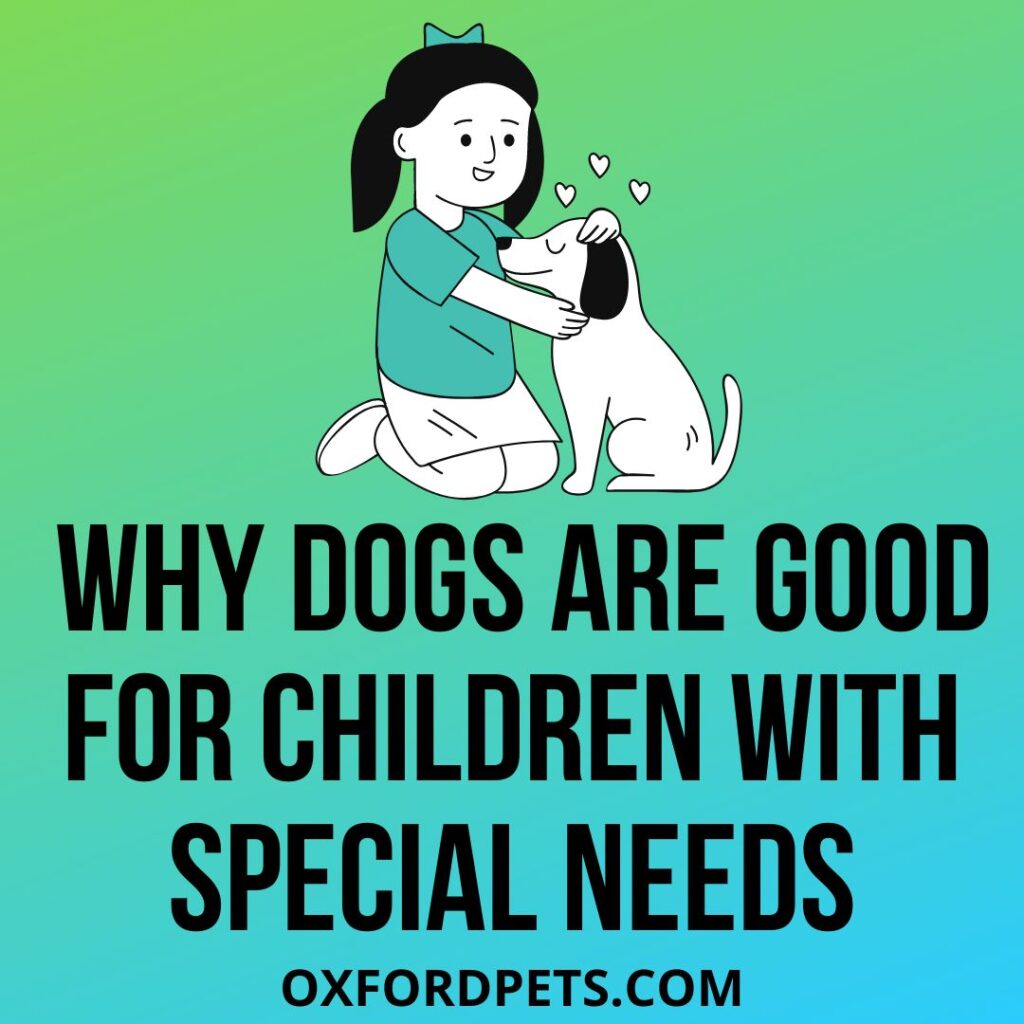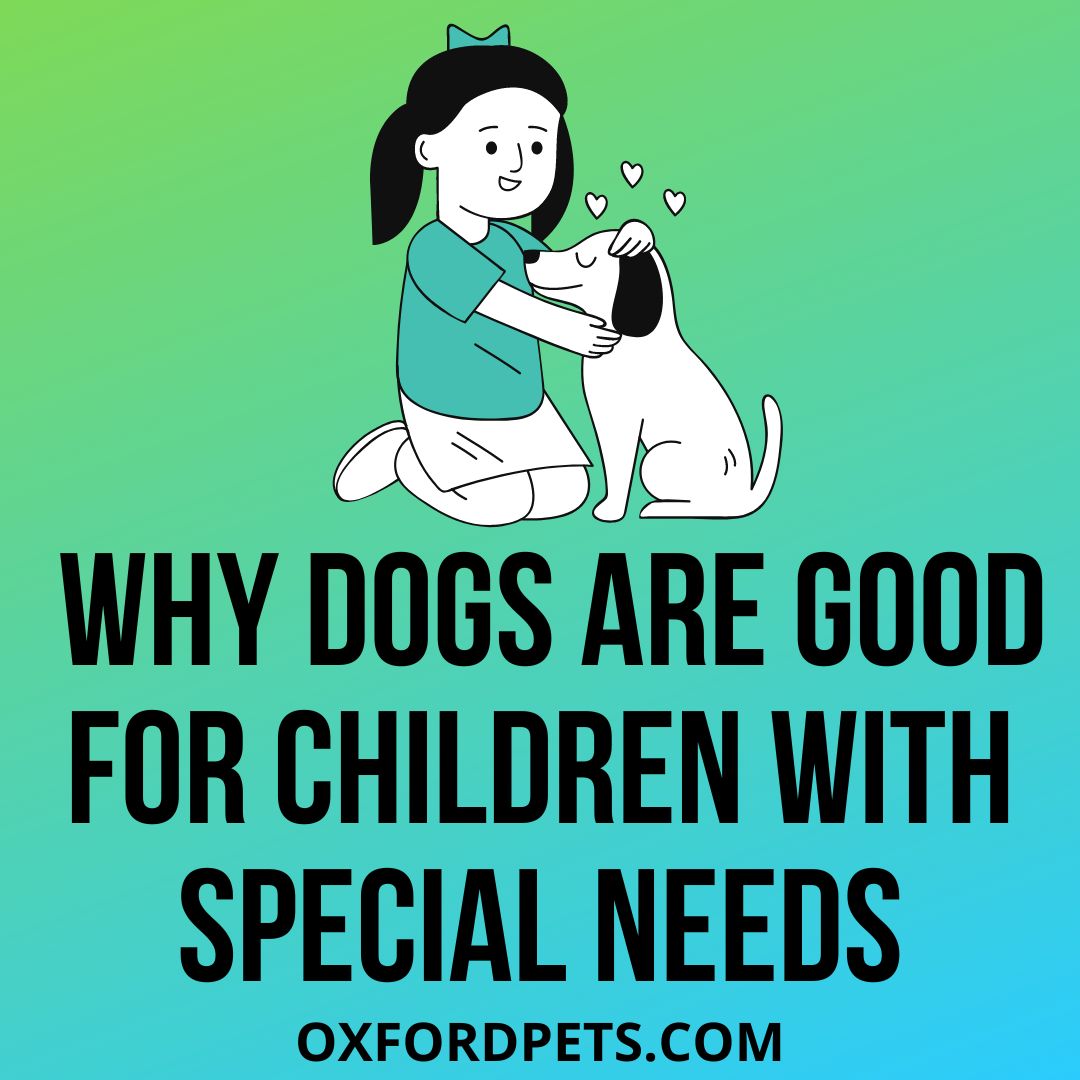Do pets help children with special needs? Countless people own pets, but when you notice a child with special needs around a pet, you can sense more calmness and companionship. Pet ownership can bring joy and happiness, and a pet can provide wonderful benefits for those with a sensory processing disorder like ADHD, Autism, and social or behavioral issues. Therefore, if you too have a special needs kid at home, here are some reasons you can consider adding a pet dog into the family.
If your child is one with special needs, you may know the struggle. Kids who suffer from sensory, social, or behavioral issues find solace with dogs or other domesticated pets in general. Dogs in Particular can help children with special needs with their interaction, Life Skills, Stress Busting, Reduction of Cortisol Levels, providing high security, and emotional support and helping children learn a sense of responsibility as well.
It’s not just a statement, but even many studies and research claim the same. Dogs, for some reason, can be highly influential for your ADHD or Autistic child. Here are some reasons and benefits explained below.
9 Reasons that explain why Dogs are good for Children with Special Needs

Contents
- Benefits of Pet Ownership for Children with Special Needs
- Is ADHD a form of Autism?
- Is a dog good for a child with ADHD? What is the best pet for a kid with ADHD?
- Do people with ADHD love dogs? Why do people with ADHD like dogs?
- Can dogs sense ADHD?
- How does an emotional support animal help with ADHD?
- Therapy and Service Animals for Disabled Children
- Can a person with ADHD get a service dog?
- Wrapping up…
Benefits of Pet Ownership for Children with Special Needs
- Dogs can help children with special needs with their interaction. Since such kids find talking, responding, or imitating difficult, parents often present them with toys or other such objects. However, As per research, such kids interact more with therapy dogs which later helps them face the human world as well. With dogs, special kids even learn how to handle their temperament better.
- Dogs can help special needs kids in developing life skills. For example, since the dog follows a schedule like eating, sleeping, pooping, and walking, it will help the child adapt to his/ her schedule as well. Scheduling, time management, peed when completing tasks, listening skills, and concentration are some of the benefits that you may observe with them.
- Dogs or even cats, for that matter, help ADHD or Autistic kids gain stability. They learn to be patient, stay calm, and stay still for a longer duration.
- Dogs work as excellent stress busters for special needs children. Such kids have more stress to deal with than what we humans can think of. However, a goofy and playful pet will help them forget about the stress and frustrations of life. Pets here act as those friends whom we count on for the 2 am problems of our life.
- The presence of a dog or any domestic pet can reduce the amount of Cortisol. Cortisol is a stress-response hormone that many autistic kids produce right after waking up from sleep. However, as per researchers, the amount of Cortisol decreased by 60% to 10% when there was a dog present. And when the dog was taken aback for a while, the stress seemed to reduce again.
- Sitting with a dog or stroking his coat is taken as a relaxing activity amongst emotionally and socially challenged kids. Animal-assisted therapy (AAT) aids in lowering blood pressure and controlling heart rate amongst special needs kids. It happens simply by touching or petting the animal.
- Dogs (Service or therapy) can provide high security for ADHD and Autistic kids. They can easily detect a dip in blood sugar levels or an oncoming seizure and alert the parent. Dogs can also help (themselves) or gather help if the child falls while playing. They also provide great protection to kids who usually sleepwalk.
- Dogs provide great emotional support during meltdowns. They identify the mood changes and gravitate towards the child instantly. And if the dog is trained, he may now skill of calming and uplifting a special child who is on the edge of a breakdown.
- Taking care of a dog can help children learn a sense of responsibility as well. Pet’s daily routine, his bathing and feeding duties make the special child responsible for him. This also helps in life in the long run.
Is ADHD a form of Autism?
No, ADHD isn’t a form of Autism, and they both are separate neurodevelopmental disorders. However, both of these conditions can share the same spectrum of symptoms.
In addition, they both relate in several ways, and therefore it is sometimes difficult to figure out whether it is ADHD or Autism, especially in small kids.
Children with Autism can remain hyper-focused on some topics, but one with ADHD finds focus a very difficult task. The former, though, have difficulties in speaking out their emotions, but ADHD sufferers may speak quickly and loudly.
Is a dog good for a child with ADHD? What is the best pet for a kid with ADHD?
Dogs, yes, are undoubtedly a good pet option for a child with ADHD. Several pieces of evidence suggest keeping a pet dog with your ADHD child.
According to UCI Health in California, ADHD kids who interact with dogs daily experience a reduction in inattention and improvements in social skills and self-esteem. The study went on multiple kids for weeks, and experts experienced the real-time development of child development and the human-animal bond.
However, dogs aren’t the only animals for ADHD kids. Instead, there is a range of other animals that kids can be with and take care of easily.
For example, the cute little furball Guinea Pigs are great pets for ADHD kids. These pets are trustable, easy to care for, very social, and they rarely get aggressive.
Or, other furry pets, including Rabbits and Hamsters, can team perfectly with special needs kids. However, amongst these animals, larger breeds work better.
Do people with ADHD love dogs? Why do people with ADHD like dogs?
Dogs aren’t just beneficial for people with ADHD, but interestingly, people even love them. Since such people find communicating and socializing difficult, they find great companionship with dogs.
And when they were already feeling isolated due to their condition, the presence of a dog helps in uplifting their mood as well as confidence.
Also, since hyperactivity is one of ADHD’s symptoms, dogs help as an outlet to shed off that extra energy. The benefit of dog ownership has been proven with specially-abled people, and it is far from their just companionship. Not only the formal research but even the real-time ADHD examples near you can prove the same.
Can dogs sense ADHD?
Dogs are one of the finest companions for ADHD survivors. Given dogs know how to make use of their five senses, they help people with ADHD in several ways.
For instance, dogs can detect an increase in sweat production simply by smelling the ADHD person. Increased sweat production helps the dog understand that the person is getting anxious or fidgety.
Since dogs are extremely sympathetic, they can sense changes in human personality and behavior quite easily. As a result, dogs can aid in maintaining focus and calming down the nerves. They can help in creating stability during difficult times or, at the least, can alert others for help.
How does an emotional support animal help with ADHD?
Emotional support animals can provide different kinds of support to people with ADHD. They provide consistency and help in formulating a schedule.
Emotional support animals remind tasks and help improve memory for ADHD sufferers. And since the person is focused more on the emotional support animal, they less often get triggered by the situations around them.
People with ADHD build a relationship with their Emotional Support Animal simply by trusting them. Such animals introduce the emotion of empathy and help the person learn the feeling of connection with other animals and humans as well.
Therapy and Service Animals for Disabled Children
Therapy and service animals make a positive difference in the life of specially-abled children. They not only aid in improving their emotional well-being but also help kids with physical independence. However, the animal must be trained to be more considerate towards the special need an individual is carrying.
Can a person with ADHD get a service dog?
A service dog may prove one of the best companions for people with ADHD but getting them isn’t as easy as it sounds. First, the ADHD individual must have a diagnosed psychological disability or condition under a reputed doctor. Here are some other conditions that an ADHD individual must need to fulfil.
The person must be at least 12 to 14 years of age. Kids who are too young can’t get service dog support.
The individual must reside in a safe and stable home environment.
He/ She must meet the physical, emotional, and financial needs of keeping a service dog along.
There must be no other dog at home.
Wrapping up…
Dogs are undoubtedly one of the best human companions, even if the person is emotionally challenged. However, having a dog for your special needs child isn’t enough. Adding medical and therapy attention is undoubtedly more important and helpful. You can surely bring a service or therapy dog for added benefits when all that is done.
